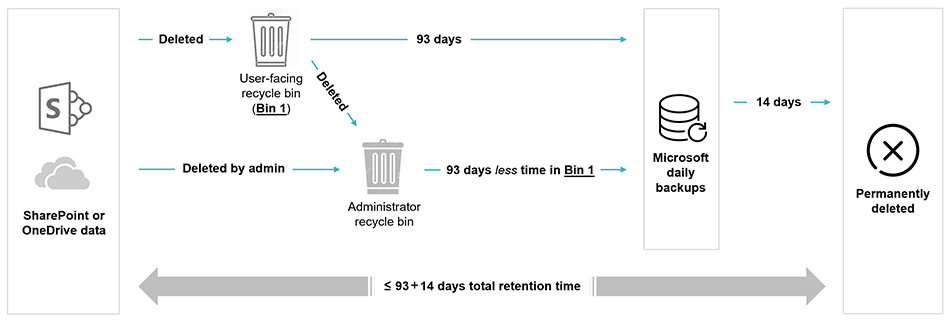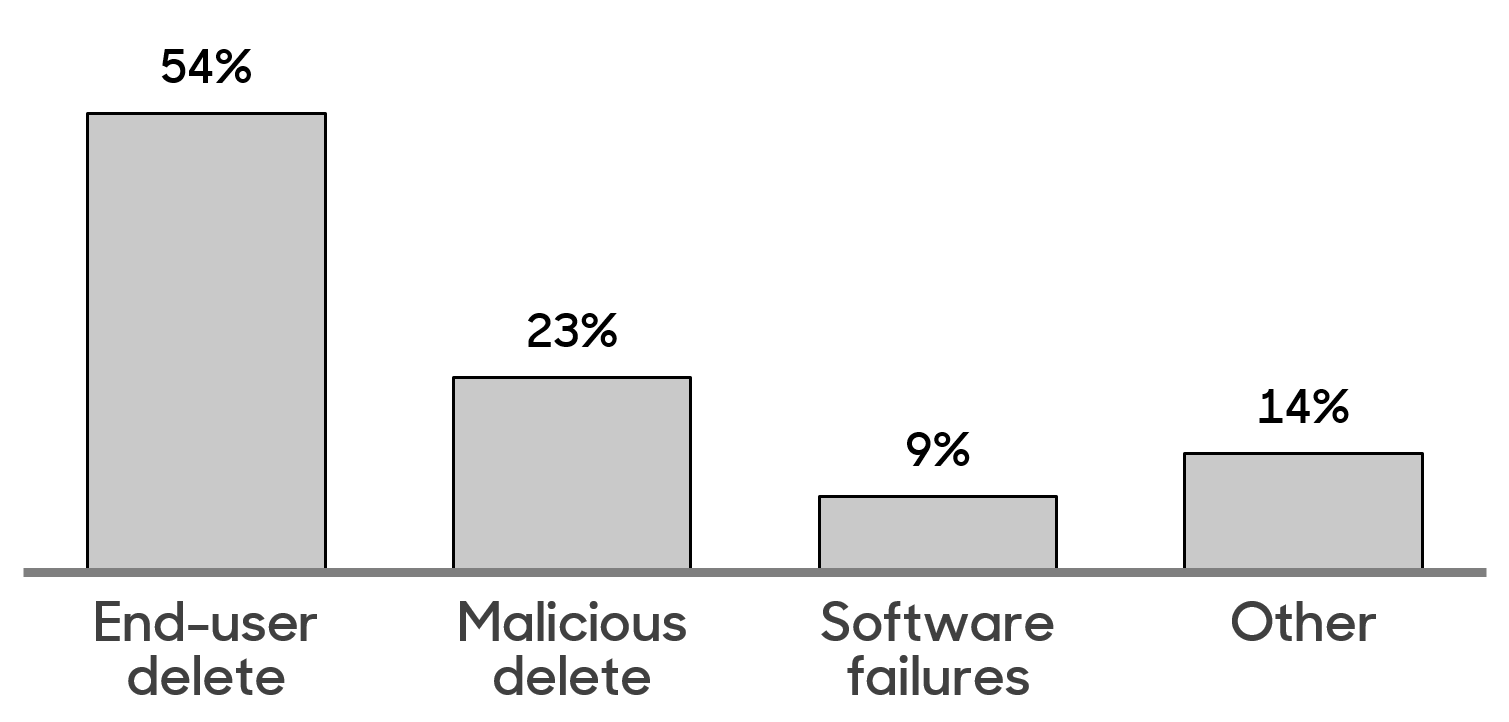The number of backup options that backup Microsoft Teams well is limited due to limitations of Microsoft 365 APIs and significant development efforts that are required to support multiple Teams data types. In this post we discuss native and third-party Teams backup options.
Microsoft Office 365 Backup Options
Office 365 backup is typically developed by traditional software vendors that offer it in addition to their core storage & backup products (VM and physical machines backup). Because few vendors focus on O365 backup as their primary workload, most backup solutions provide only partial support of Office 365 data sources and applications.
How to recover G Suite email, Drive files, Contacts and other lost data?
What do you need to do to recover lost Google Drive files, Gmail messages, Contacts and other data?
In short, your chances of getting back the data depend on how much time has passed since the files were lost.
In most cases, if you rely on standard built-in G Suite data recovery, you are limited to 30-60 days after the data loss event.
SharePoint Online Backup: Native vs Third-party Tools
Microsoft 365 built-in features provide basic SharePoint backup capabilities, but are often inadequate. Third-party backup tools provide SharePoint backup with unlimited retention and help protect data against accidental deletions & cyber attacks.
How often Google and Microsoft lose their cloud customers' data?
While Google states that Gmail provides 99.978% uptime with zero scheduled downtime for maintenance (no uptime figures are available for overall G Suite platform), there are multiple known
cases
when Google lost its cloud customers' data. Instances when Microsoft or Google lose customers' data are reported regularly, but importantly, most of them occur due to force majeure circumstances such as lightning blasts, massive power outages and fires. And as a matter of fact, most data losses in the cloud occur due to users' intentional (malicious) and unintentional (like accidental deletions) actions.
G Suite Backup Options: Scripts, Vault or Cloud Backup?
More than 5 mln businesses use G Suite. Most of them rely on third-party cloud-to-cloud backup tools (38%) as well as scripts and open source tools (5%), while 37% employ native G Suite data protection tools - including Google Vault.
What are advantages and disadvantages of different methods, and what are the risks in case you don't use any data protection?
Why do you need to back up G Suite data?
More than 3 million of business customers trust G Suite with their data. However, they trust with caution - many of them keep backups of their G Suite data. Why would anyone backup public cloud applications? Top reasons include user errors (deletions and overwrites), compliance requirements, employee departures (including the risk of malicious deletions), and caution on behalf of companies migrating from traditional on premise solutions to the cloud.
Will O365 support only subscription from 2020?
Microsoft announced that as of 13 October 2020 only versions of MS Office for Windows desktop that are in the mainstream phase (first 5 years) of their support life cycle will be able to connect to Microsoft Office 365 online services like Exchange, SharePoint and OneDrive. What does this mean for organizations planning to use perpetual licenses for O365?






